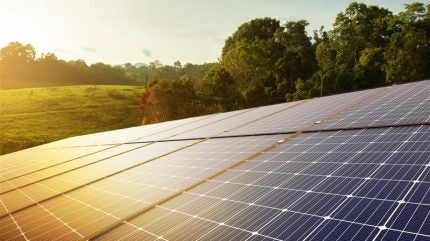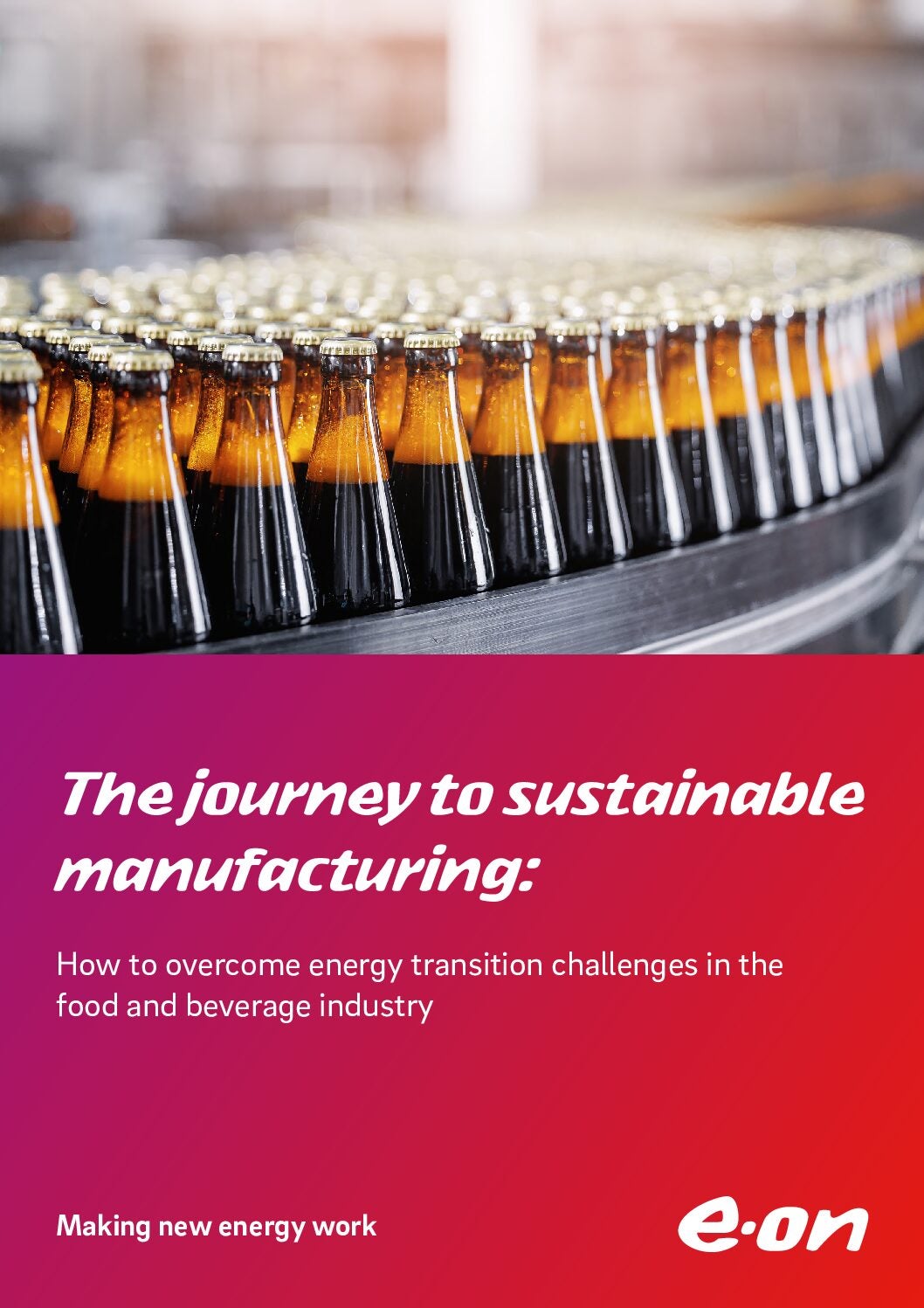
In Europe, the push to improve sustainability is accelerating in carbon-intensive industries such as food and beverage processing. Much of the pressure comes from government goals such as the EU’s legally binding target to achieve net-zero greenhouse gas emissions by 2050. But spurred by growing consumer demand for sustainable products, many companies are aiming to achieve this at an even earlier point in time.
According to analysis shared by GlobalData on a recent webinar sponsored by E.ON Energy Infrastructure Solutions, more than 400 companies in the food and beverage processing sector have set emissions reductions targets that have been approved by the Science Based Targets initiative, and the vast majority of these have been set for 2030.
“Many companies will have set these targets in 2022, 2023, or maybe sometimes even earlier – back when 2030 seemed a long way away,” notes webinar host Christopher Papadopoullos, Principal Analyst, GlobalData during the introduction. “Now, if you’re doing five year planning, 2030 isn’t far away at all.”
With no one-size-fits-all or off-the-shelf solution on offer when it comes to emissions reduction, food and beverage companies are facing challenges. These challenges can be summarised in the energy trilemma framework, explains E.ON Energy Infrastructure Solutions’ James Cottrill, Director of B2B Sales, who was joined by two other energy transition experts from E.ON – Christoph Hiesgen, Senior Manager Growth & Sales, and Mathilda Jansson, Team Lead, Food & Beverage, AirSon – on the webinar.

“The food and beverage industry wants decarbonisation, but decarbonisation can’t be at any cost,” expands Cottrill. “It’s got to be affordable and you need to have a business at the end of it.
“It’s really about that security of supply and resilience as well,” Cottrill adds. “We’ve got to develop energy solutions that both meet your current and future needs, and at E.ON Energy Infrastructure Solutions (EIS) we’ve been working with lots of companies in the F&B sector to make sure we have this with no shortages or disruptions to your business-as-usual.”
Huge energy savings available
The good news is that there are a range of possibilities and support available, from establishing long-term green energy power purchase agreements (PPAs) with suppliers like E.ON to building and operating on-site renewables projects such as the 4.2MW solar farm that E.ON EIS installed at a large Diageo site in Fife, Scotland, generating 22% of the site’s annual electricity needs (rising to 60% during the summer months). E.ON can also help clients identify and access funding opportunities to support such CAPEX-heavy projects – a “crucial aspect” of making these ventures financially viable.
According to Christoph Hiesgen, waste heat recovery is another big focus for E.ON and a key lever for decarbonisation. F&B manufacturers can implement heat pumps as an alternative to gas-fired boilers and could even work with E.ON to connect up with their local municipality’s district heating network, finding opportunities to better harness the excess energy generated via heating and cooling processes.
The speakers also note the importance of optimising existing resources in order to reduce energy consumption, and this is where E.ON’s AirSon subsidiary can help. As Mathilda Jansson explains, AirSon is specialised in controlled production environments and supporting mechanical, electrical, and plumbing (MEP) installations in new or existing facilities:
“We lead a lot of energy efficiency projects,” says Jansson. “It includes analysing entire factories, mapping energy flows, and proposing and implementing energy saving measures. We do all of our projects in the full chain, from helping clients define their requirements, through design and construction and all the way to validation and follow-up.”
Later in the webinar, Jansson shares two key case studies which show how these services help major manufacturers in the F&B industry improve their energy efficiency and minimise the climate footprint of their products.
Embracing decentralised energy
Towards the end of the webinar, Hiesgen discusses how decentralised methods of energy generation can help companies overcome one of the most significant challenges they are likely to face during the energy transition:
“Every industry is going in the way of electrification, and that means we need a lot of reinforcement in the grid. Last year, we invested around 8 billion euros into our grids, and this is only a small portion of the required money. Grid capacity is a big challenge, so we must develop alternative or complementary solutions to overcome these constraints with on-site generation.”
E.ON Energy Infrastructure Solutions offers integrated, configurable, and optimised energy solutions with CAPEX and non-CAPEX business models ranging from contracting, PPAs, and leasing to design & build or operations & maintenance services. To learn more about the options available and the challenges facing the food and beverage industry, watch the full webinar on-demand by downloading below.



